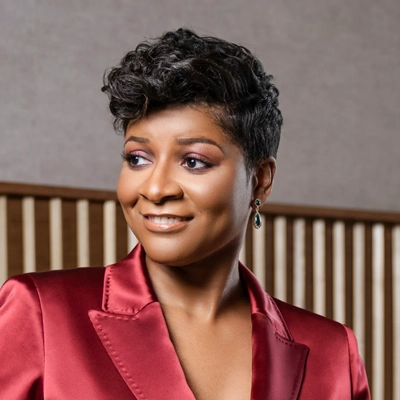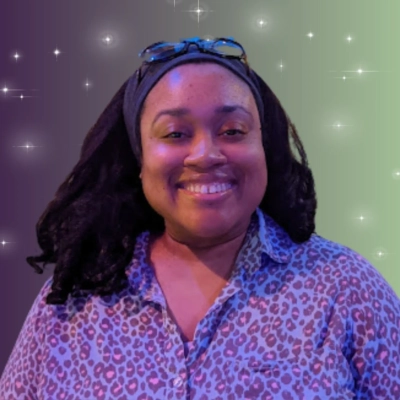Discover the secrets to building a thriving business coaching practice with expert-backed strategies. This article presents valuable insights from seasoned professionals who have mastered the art of empowering clients and achieving measurable outcomes. Learn how to cultivate authentic leadership, overcome common challenges, and create lasting change for your clients.
- Listen More, Speak Less for Impact
- Serve Clients, Not Showcase Expertise
- Ask Better Questions, Don’t Give Answers
- Focus on Measurable Client Outcomes
- Build Your Business from Authentic Truth
- Master Your Money Mindset Early
- Lead from Within, Not from Performance
- Prioritize Personal Growth for Business Success
- Take Action Now, Learn Through Experience
- Your Lived Experience Is Valuable Wisdom
- Embrace Your Authentic Coaching Style
- Specialize to Attract Ideal Clients
- Overcome Impostor Syndrome Through Consistency
- Separate Client Actions from Personal Worth
- Heal Yourself to Empower Others
- Foster Client Ownership for Lasting Change
Listen More, Speak Less for Impact
If I could go back, I’d tell myself this: You don’t need to impress anyone. You just need to help them see things clearly.
When I started coaching, I thought my job was to show how much I knew. I would prepare extensively, write frameworks on the board, and try to sound sharp. However, over time, I realized that the best sessions weren’t the ones where I spoke the most. They were the ones where I said almost nothing except the one question that unlocked something for the team.
The real skill isn’t teaching; it’s listening. It’s seeing the tension in the room that no one is naming. It’s helping an entrepreneur get honest about what’s actually holding them back. That’s the craft, and it takes time to trust it.
Today, my work feels lighter. Not easier, but lighter. I don’t show up with answers. I show up curious. I’m more focused on creating progress than delivering content.
So if you’re just getting into coaching, don’t aim to be impressive. Aim to be useful. The impact comes when people leave the room a little clearer than when they walked in.
 Ramiro Saborio
Ramiro Saborio
Business Coach, Stoic Mind
Serve Clients, Not Showcase Expertise
I’ve spent over a decade helping individuals and organizations navigate growth, transition, and reinvention. When I reflect on what I would tell my younger self about building a business coaching practice, one lesson stands out above all: build the business around the people you want to serve, not just the service you want to deliver. Too often, coaches focus first on credentials and content—when in truth, sustainable success comes from understanding your clients so deeply that your practice evolves as their needs do.
The most valuable lesson I’ve learned over the years is that successful coaching is 80% listening, 20% advising. And the listening doesn’t stop at client sessions—it applies to market signals, feedback loops, and shifting career trends. As someone who now coaches coaches, I’ve seen too many well-intentioned professionals struggle because they created solutions in isolation rather than through deep, iterative engagement with their ideal client base.
When I first launched my company, I focused on job seekers—resume help, mock interviews, LinkedIn branding. It worked, but something was missing. I was attracting a volume of clients, but not the right clients for long-term growth. It wasn’t until I narrowed in on coaches, consultants, and professionals in career transition that my practice scaled authentically.
A 2024 report by the International Coaching Federation (ICF) revealed that 84% of successful coaching practices identified “client clarity and niche focus” as the primary driver of revenue growth. Practices that regularly surveyed their clients, adapted offers based on lived experiences, and remained flexible in service delivery outperformed their peers by 2.5x in client retention.
If I could go back, I’d tell my younger self that building a successful coaching practice is not about having all the answers—it’s about creating space for better questions. Lead with empathy. Learn from your clients. Build a community before building a funnel. And above all, remember: business coaching isn’t about being impressive—it’s about being impactful.
The coaching landscape will keep evolving, but the foundation remains the same: deep client understanding, purposeful alignment, and the courage to adapt. That’s the lesson I’ve learned—and the advice I’d now pass forward.
 Miriam Groom
Miriam Groom
CEO, Mindful Career Inc., Mindful Career
Ask Better Questions, Don’t Give Answers
After building five companies and now coaching SaaS and service-based founders, the lesson I wish I had learned earlier is that success in coaching is not about giving people the right answers; rather, it’s about helping them ask better questions.
When I first started coaching, I focused on solving problems quickly. I thought value came from handing someone a strategy or shortcut they didn’t have. But over time, I realized that real impact comes when you help someone shift how they think, not just what they do. A founder who learns to see the root of their problem will always outgrow the founder who just patches symptoms. That shift only happens when you ask the hard questions that stop people in their tracks—questions that challenge assumptions, bring clarity, and force ownership.
The point is, you don’t scale a coaching business by being the smartest person in the room. You scale it by helping smart people become more honest, more focused, and more capable of solving their own challenges.
 Jeff Mains
Jeff Mains
Founder and CEO, Champion Leadership Group
Focus on Measurable Client Outcomes
As someone who has spent years helping entrepreneurs, executives, and brands increase their influence and revenue through strategic consulting, I can share some valuable insights.
If I could give my younger self one piece of advice about building a successful business coaching practice, it would be this: Focus relentlessly on producing measurable results for your clients rather than selling methodologies or frameworks.
The most valuable lesson I’ve learned is that clients don’t buy coaching or consulting—they buy outcomes. They want transformation, not information. This realization completely changed my approach to business.
Early in my career, I was caught in the trap of positioning my services around my knowledge, processes, and frameworks. I thought clients were buying my expertise. What I discovered is that they were actually buying the promise of a specific result—more revenue, better leadership, improved operations, etc.
When I shifted my approach to be results-focused rather than methodology-focused, everything changed:
1. My initial conversations became about the client’s desired outcome, not about my credentials or approach
2. My pricing increased dramatically because I was selling value, not time
3. My closing rate improved significantly because I was speaking the language of business outcomes, not coaching theory
4. Client retention soared because we were measuring progress against clear benchmarks
The most successful coaching businesses I’ve built or observed all share this common trait: they’re laser-focused on delivering and measuring specific client outcomes.
Here’s how to apply this insight to your coaching practice:
1. Define specific, measurable outcomes your ideal clients want
2. Position all your services around these outcomes, not your methods
3. Create case studies that highlight results, not just testimonials
4. Develop measurement systems to track client progress
5. Price based on the value of outcomes, not your time
This approach transforms you from a “coach” (which can be seen as a luxury) into a “business growth asset” (which is seen as an investment).
The coaches and consultants who struggle most are those selling their time and methodology. The ones who thrive sell specific, measurable transformations that deliver ROI.
 Justin Donne
Justin Donne
Executive Consultant
Build Your Business from Authentic Truth
If I could give my younger self one piece of advice about building a successful business coaching practice, it would be this:
Get radically clear on who you are and what you stand for—then build everything from there.
Not from trends.
Not from fear.
Not from trying to be what you think people want.
From truth.
Because when your business is rooted in your soul—not just strategy—you don’t just attract clients.
You call in the right ones. The ones you’re meant to serve.
And the most valuable lesson I’ve learned?
Success isn’t just about scaling a business. It’s about building a life you don’t have to run away from.
The real win is when your business supports your freedom, your peace, and your purpose—not the other way around.
 Jennifer Maher
Jennifer Maher
Soulful Prosperity Coach, Prosperous Jenn
Master Your Money Mindset Early
The best piece of advice I would give to my younger self is to start self-coaching now, especially on money mindset. The money problems I have as a side hustler are the same at a 7-figure level. It is about making sure that I know how to manage my money mindset so I can sell well and serve my clients and audience well! If you are not coaching yourself around money, you will burn out, and it will impact the way you show up.
 Dielle Charon
Dielle Charon
Business Coach, For the 23%
Lead from Within, Not from Performance
If I could give my younger self one piece of advice: don’t confuse performance with power.
In the early days, I worked overtime to prove I belonged. Over-delivering, over-explaining, overextending. It looked like strength and got results, but it wasn’t power.
True power doesn’t hustle for permission or need to convince. It’s not loud; it’s grounded.
A sustainable business is built on discernment, self-respect, and the courage to stop performing for systems not built for you.
Everything changed when I stopped trying to earn my place and started leading from within. My business shifted. So did my body, boundaries, and bandwidth.
That’s what I teach now, not because I got it right early, but because I know what it costs when you don’t.
 Lauren Carter
Lauren Carter
Fractional COO and Strategic Advisor, Lauren Ashley Consulting
Prioritize Personal Growth for Business Success
If I could give my younger self one piece of advice about building a successful business coaching practice, it would be this: never forget that business owners are people first. When they feel clearer, more grounded, and whole in themselves, their businesses often shift naturally as a result. Better decisions, better leadership, and better outcomes tend to follow. The most valuable lesson I’ve learned is that when clients see bottom-line value in your work—not just in numbers, but in clarity, confidence, and personal capacity—they recognize it and keep coming back. The smartest leaders understand that sustained growth starts from the inside out, and those are the ones who become long-term clients and partners in the work.
 Michele Caron
Michele Caron
Life Coach, Founder, MyLifeCoach(dot)com
Take Action Now, Learn Through Experience
To my younger self embarking on this coaching journey, I’d say: “You’re ready enough—trust your resourcefulness now rather than waiting for some imaginary moment of complete preparation.”
The most valuable lesson I’ve learned is that excellence doesn’t require perfection. My greatest growth came not from endless preparation but from action—from stepping across those self-imposed edges and learning through experience.
Your clients don’t need you to be flawless; they need you to be authentic. The same Name, Claim and Reframe® process that helps them transform works equally well for building your business. Name your fear of inadequacy, claim actions aligned with your values even when uncomfortable, and reframe “failures” as essential feedback.
Remember that trading comfort zones for courage zones isn’t just what you teach—it’s how you build a thriving practice.
 Andrea DeWitt
Andrea DeWitt
The Global Authority On Cognitive Reframing, Andrea DeWitt Leadership Coaching
Your Lived Experience Is Valuable Wisdom
If I could speak to my younger self, I’d tell her this: Building a coaching practice will become one of the most aligned and purpose-filled paths you could ever take—because all it truly requires is that you lead by example.
I would remind her that her lived experience is not only valid, but also valuable. Everything she’s survived, solved, or succeeded in holds deep wisdom—and that wisdom is exactly what someone else is still praying for. I’d tell her to never gaslight herself into believing that “everybody knows this already.” They don’t. And that’s the point.
In coaching, experiential knowledge is often more impactful than academic theory, and when the two are combined, it’s a powerful force. My most valuable lesson to date has been this: Never assume what you know is common knowledge. What’s second nature to you could be the breakthrough someone else has been waiting for.
There is deep power in owning your story, your skillset, and your voice. Coaching is about service through embodiment—and when you show up as your full, authentic self, the right people will always find you.
 A.D. Marshall
A.D. Marshall
Founder| Executive Director| Chairwoman, 3ive Society Women’s Club
Embrace Your Authentic Coaching Style
Dear younger me:
Your business doesn’t have to look like someone else’s to be successful. You don’t have to shout to be heard. Quiet power is still power. Build a coaching practice around who you actually are…not who you think you need to be to get clients. Your perfect-fit clients will find you and love working with you.
 Tiffani Walker
Tiffani Walker
Transformational Life Coach, Tiffani Walker Coaching
Specialize to Attract Ideal Clients
I would tell my younger self to figure out my niche better. However, I may not have figured it out without first being a generalist and trying to do everything. One of the most valuable lessons I’ve learned in my 14 years of running my career coaching business is that I will attract the right clients for me by the way I brand my business. I don’t need to be everything to everyone, which is exactly what I tell my clients. Get really good at a set of skills and become known for it. People are drawn to experts in their fields.
 Linda Evans
Linda Evans
Career Coach, Launched By Linda
Overcome Impostor Syndrome Through Consistency
It’s easier than ever to start a business.
We have free platforms to promote ourselves, do market research, and test our ideas before spending a single dollar.
My advice? Just start.
Give it one full year of consistent effort before deciding it doesn’t work.
And the most valuable lesson?
Even influencers and 6- or 7-figure business owners face impostor syndrome. No one’s immune.
But if they can feel it and still show up, then so can you.
 Mangla Sachdev
Mangla Sachdev
Founder, Expat Business In A Bag
Separate Client Actions from Personal Worth
My advice to my younger self would be quite simple:
You are in the business of providing coaching. You are not in the business of making people listen to you. If you believe you are not being effective at getting people to trust your coaching, you can work on that in your own time.
However, it is important that you never take clients’ actions personally. Even with coaching, everyone wants to try their own ideas and fail. This is just human nature.
 Steven Lowell
Steven Lowell
Sr. Reverse Recruiter & Career Coach, Find My Profession
Heal Yourself to Empower Others
The most valuable lesson I have learned is that I am responsible for healing everything within myself (which I seem to have done). As a result, my healed and powerful energy precedes me and opens doors. I would advise my younger self to heal fully, never take action driven by negative emotions, and to focus on all the good. The more I focused on the positive aspects of life, the more good came to me.
 Karen Lorre
Karen Lorre
True Mastery Coach, Karen Lorre Coaching
Foster Client Ownership for Lasting Change
Straight advice can sometimes solve a problem, but more often, it falls short. That’s because most meaningful change doesn’t come from having the “right answer,” but from how someone perceives the problem and whether they own the path forward.
Effective coaching begins by understanding the client’s perspective: how they see their challenge and why they see it that way. When the client not only understands the what but also the why, it shapes what they’re willing and able to do next. Before jumping to solutions, a better strategy as a coach is to pause to uncover assumptions, fears, and beliefs that drive their behavior. This creates space to reframe the challenge in a way that deeply resonates.
Ultimately, the goal isn’t compliance; it’s getting commitment. When clients help shape their solution, they take ownership. That ownership fuels intrinsic motivation—the kind of motivation that drives real follow-through, persistence, and problem-solving beyond the coach’s guidance.
Advice might create a small spark, but understanding, framing, and ownership are what will sustain the fire.
 Russel Dubree
Russel Dubree
Agency Coach, Performance Faction








